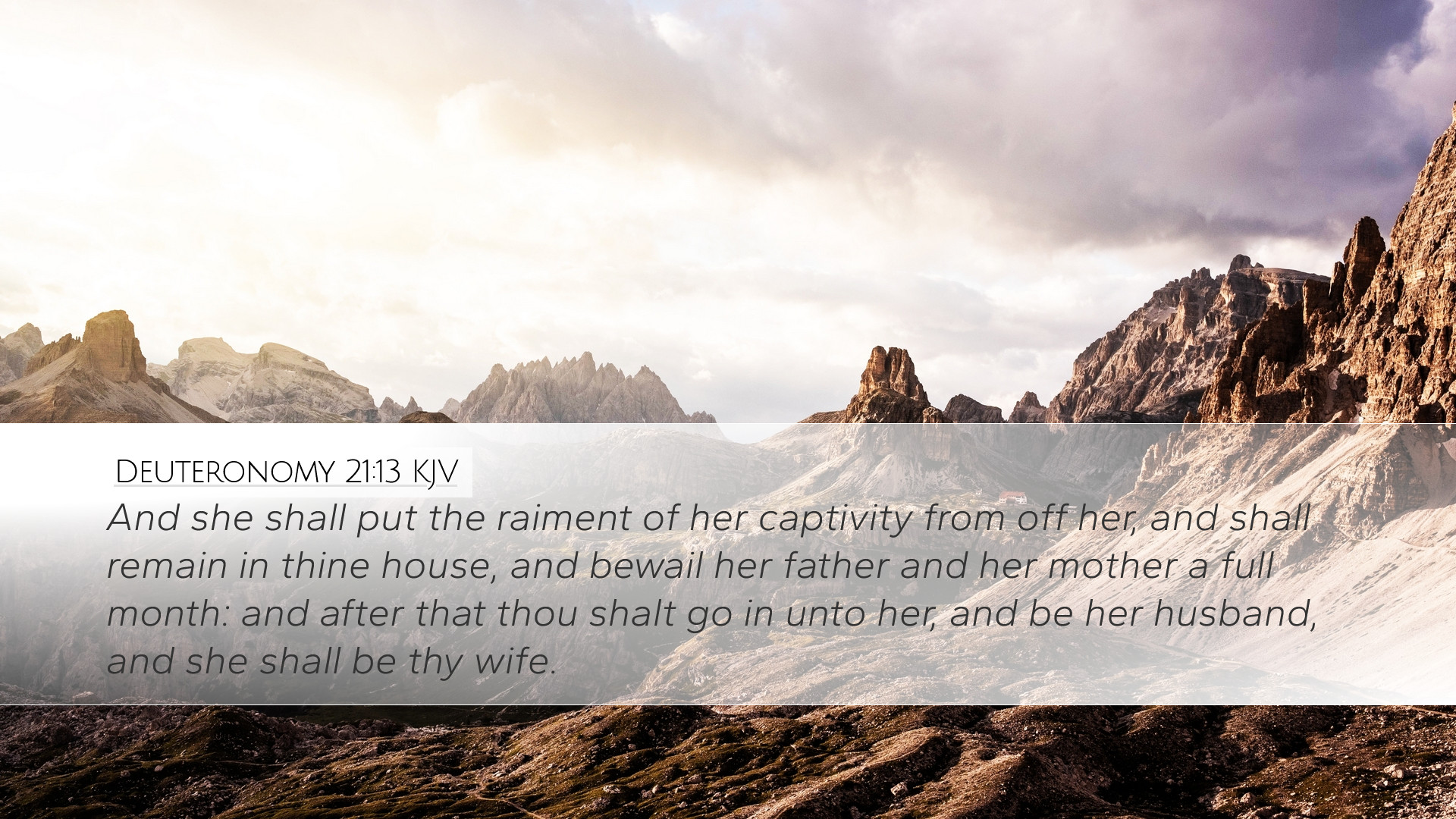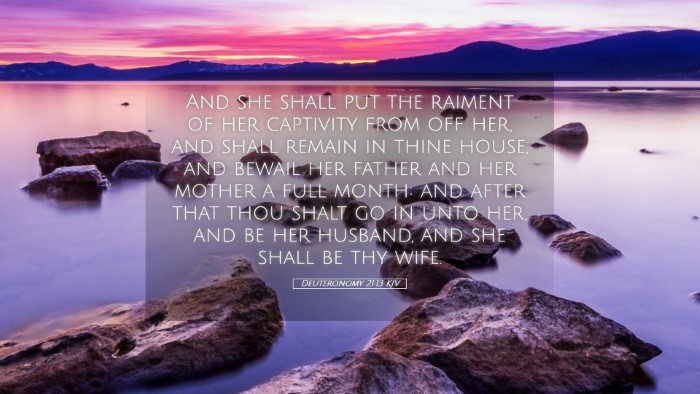Commentary on Deuteronomy 21:13
Verse: "And she shall put the raiment of her captivity from off her, and shall remain in thine house, and bewail her father and her mother a full month: and after that thou shalt go in unto her, and be her husband, and she shall be thy wife."
Introduction
This verse is situated within a larger discourse on laws concerning warfare, relationships, and social justice in ancient Israel. The specific command regarding captive women reflects both the cultural practices of the time and the ethical regulations intended to govern Israelite behavior. It is important to note how this passage represents both divine law and societal norms, offering insights into the relationship between God’s commands and humanity's social realities.
Historical Context
The context of Deuteronomy is crucial for understanding this command. As the Israelites prepared to enter the Promised Land, Moses outlined the laws that would govern their community, including issues arising from war. Captives from the enemy were regarded under a distinct set of laws that aimed to ensure humane treatment and mitigate the harshness of warfare.
Exegesis
In this verse, particularly, we find a depiction of a transition for the captive woman from her status as an object of conquest to a member of the Israelite household.
Clothing as Symbolism
The act of removing the "raiment of her captivity" signifies a move from her former identity as a captive to a new role as a potential wife. Matthew Henry points out that clothing symbolizes one's status and identity; the removal of such garments indicates transformation and a new beginning in a protective environment.
Grieving Period
The requirement for the woman to "bewail her father and her mother a full month" reflects an understanding of emotional trauma. This period of mourning serves not only to honor her family but also provides the woman with the necessary time to process her loss. Albert Barnes emphasizes that this mourning period serves a dual purpose: it recognizes her grief and allows her to enter into marriage without the burden of unresolved emotional pain.
Marriage after Mourning
After the mourning period, the text states that the man may "go in unto her," representing the formalization of the marriage. Adam Clarke notes that this procedure is meant to show respect for the woman’s emotional state and dignity, ensuring that her new marital relationship is grounded in commitment rather than mere desire or impulse.
Theological Insights
This passage highlights several critical theological themes relevant to both ancient and contemporary audiences:
- The Nature of God’s Law: God’s laws often reflect a concern for the marginalized and the vulnerable. The provision made for captive women illustrates God’s desire for justice and compassion even amid the brutality of war.
- Human Dignity: By mandating a mourning period and creating a pathway to legitimate marriage, the text affirms the inherent dignity of the individual, regardless of their circumstances.
- Relationship Restoration: The transition from captivity to marriage symbolizes broader themes of redemption and restoration, key components of the biblical narrative.
Practical Applications
For pastors, students, and theologians, Deuteronomy 21:13 offers several practical reflections:
- Emphasizing Compassion: Ministry should reflect God’s compassion, especially towards those in vulnerable situations. This biblical law prompts modern believers to advocate for justice and the humane treatment of all individuals.
- Understanding Grief: The acknowledgment of a mourning period reminds us to be sensitive to the emotional needs of others, especially during transitions in their lives.
- Covenantal Relationships: The passage encourages a study of healthy relationships grounded in mutual respect and commitment, which is foundational for both marriage and community.
Conclusion
Deuteronomy 21:13 serves as a profound testament to God’s concern for justice, dignity, and the complexities of human relationships. It calls upon believers to reflect these divine attributes in their lives, encouraging a compassionate approach towards the disenfranchised and a commitment to understanding the emotional realities of others.
This ancient command still resonates within our modern context, urging all who seek to interpret and live out Scripture to do so with both integrity and love.


